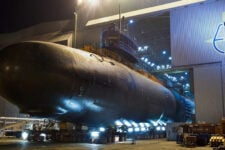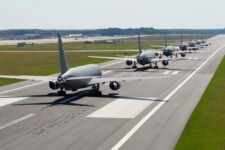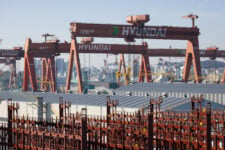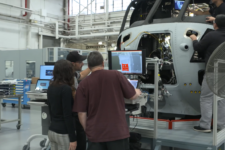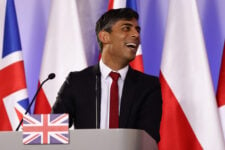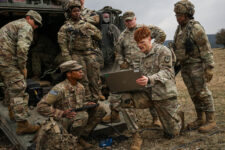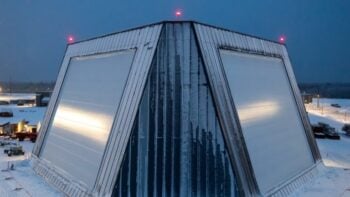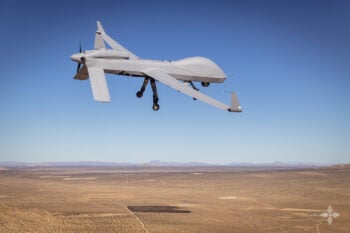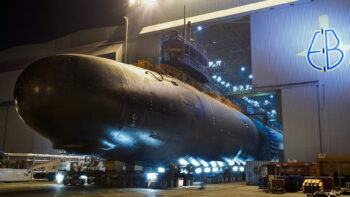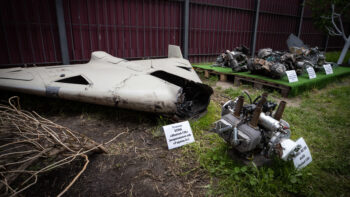 Despite international perceptions that the Turkey’s Islamic-oriented government has turned its back on its American ally, Ankara’s ambassador to the United States insists that “the relationship has never been so close.”
Despite international perceptions that the Turkey’s Islamic-oriented government has turned its back on its American ally, Ankara’s ambassador to the United States insists that “the relationship has never been so close.”
“That doesn’t mean that we don’t have any disagreements,” Ambassador Namik Tan told reporters this morning. “Turkey is, of course, an independent state.” But Tan affirmed the closeness between the two countries. He particularly emphasized defense procurement, saying that Turkey is still committed to buying the F-35 Joint Strike Fighter despite cost and schedule problems that have caused other potential partners, such as Canada, to reconsider.
In a breakfast session with the Defense Writers Group, Tan was particularly positive on the response by the United States and NATO to Turkey’s request for Raytheon Patriot air and missile defense systems, the first components of which he said were arriving. Turkey is holding a competition to upgrade its own missile defense systems, with Patriot as a leading contender, but those systems won’t be fielded for years, hardly in time for the current crisis.
Tan said the six Patriot PAC 3 batteries being provided by NATO members, including the US, were particularly important because Syria “has weapons of mass destruction” — referring to Syria’s known chemical weapons capability — and had ballistic missiles “that cover almost every corner of Turkey.”
Although there has been some speculation that the Patriots could be used to help enforce a “no fly zone” over Syria to protect the opposition forces, the ambassador insisted that they “are defensive systems. There is no offensive part of that.” And he noted that the missile batteries will be controlled by NATO, which would set the rules of engagement for their use.
Asked how his government expected the prolonged bloody conflict in Syria would end, Tan said: “One thing is quite clear, Assad, the regime, cannot sustain itself. It will go,” referring to Syrian President Bashar Assad. Later he said, “I don’t see any other alternative to the opposition… At the end of the day, I think the opposition will be in a position to win, to run the country.”
“When? We hope soon. The more it drags out, the worse it gets,” he said.
Tan said Turkey was not supplying any weapons to the Syrian opposition, but Ankara did not oppose such efforts already underway by other countries. “The regime is using heavy artillery against their own people,” plus helicopters, aircraft and tanks, he said. “We would like to see the Syrian opposition in a better position to respond to that.”
The ambassador said Turkey was concerned about the possibility of extremist elements in the opposition, but would not state a view on the US decision to put one opposition group reportedly linked to Al Qaeda,the al-Nusra Front, on the international terrorism black list.
Turkey would be willing to join in any international effort to ensure stability in Syria when the regime fell, Tan said, but would not try to lead it.
Tan also made clear that Turkey supports the “territorial integrity” of Syria and would oppose any division of the country along ethnic lines. Syria has a sizable Kurdish population in areas bordering Turkey, which has waged a decades-long war against its own Kurdish separatists, and a fragmented Syria along their southern border would throw fuel on this long-smouldering fire.
Missile Defense Agency’s new long-range radar steps toward full deployment
“The LRDR completed a Space Domain Awareness (SDA) data collect event in January 2024 that proved the SDA capability, and the U.S. Space Force and MDA are in the process of formally declaring LRDR ready for SDA early use in April 2024,” according to MDA Director Lt. Gen. Heath Collins.



